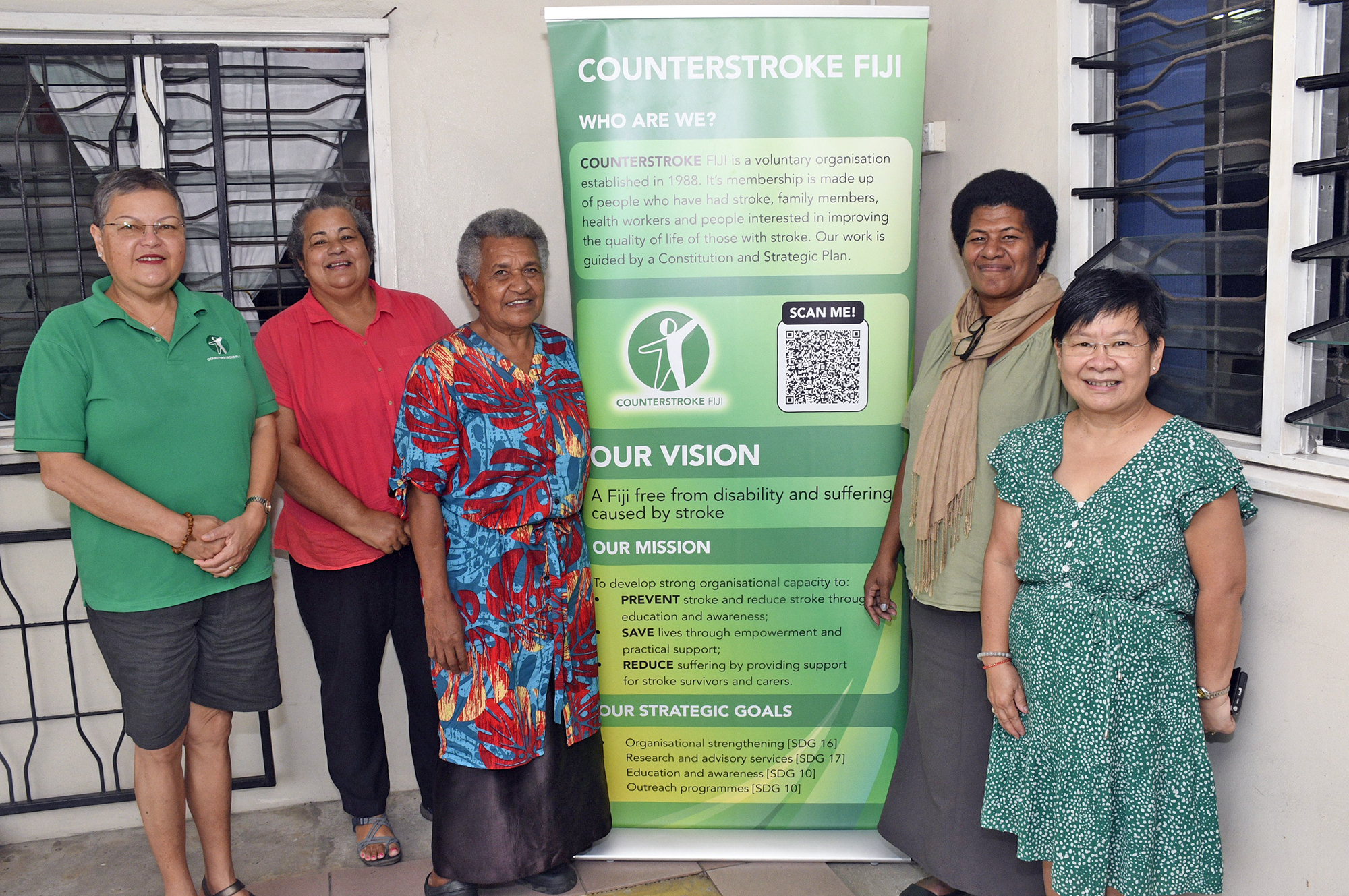TRAUMA witnessed in domestic violence can trigger a stroke, says Counterstroke Fiji, while also urging parents to control their children’s on-screen times to ensure they have enough rest.
The comments by Counterstroke Fiji president Elizabeth Reade Fong come in the wake of concerning statistics that reveal children as young as 4, 12 and 15 years of age are among the youngest stroke patients in the country.
“We have noted that trauma such as that witnessed in domestic violence can also trigger a stroke,” she said.
“Any stressful action can trigger a stroke.
“Parents can help prevent their children from getting a stroke by controlling device time so that children get the proper hours of sleep and get used to a routine of rest.”
Ms Fong said parents also needed to lead by example through a balance of work, rest and relaxation.
“The provision of a healthy local diet with foods containing minimal preservatives is also an excellent preventative measure.
“Also, reducing the processed snacks consumed by children that contain salt that impacts blood pressure and sugar that impacts weight which places pressures on the organs which over the long term can trigger a stroke.”
She said while hypertension was the most common trigger of strokes, this was worsened by underlying medical conditions such as diabetes and high cholesterol which caused blockages in the artery and affected blood flow to the brain.
“A stroke, resulting from a clot, or a tear in a blood vessel starves the brain of oxygen, often causing irreparable damage.
“Depending on the side of the brain affected a stroke could impact memory, movement, mobility, speech, sensation, balance, and emotional control, among other things.
“Generally, it changes one’s life irrevocably, and that of family, community, and the nation at great cost to all.”
Ms Fong said stroke survivors facing mobility difficulties were at a disadvantage with Fiji’s infrastructures.
“Physical infrastructure is an ongoing issue for all persons with mobility issues, and many stroke survivors fall into this category.
“Town and city planning systems might, in theory, support persons with disabilities but implementation and enforcement systems are weak.”



